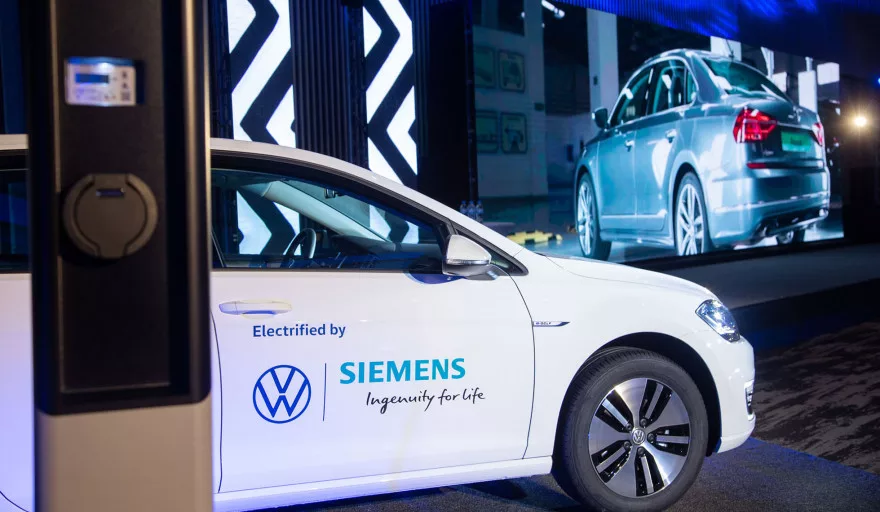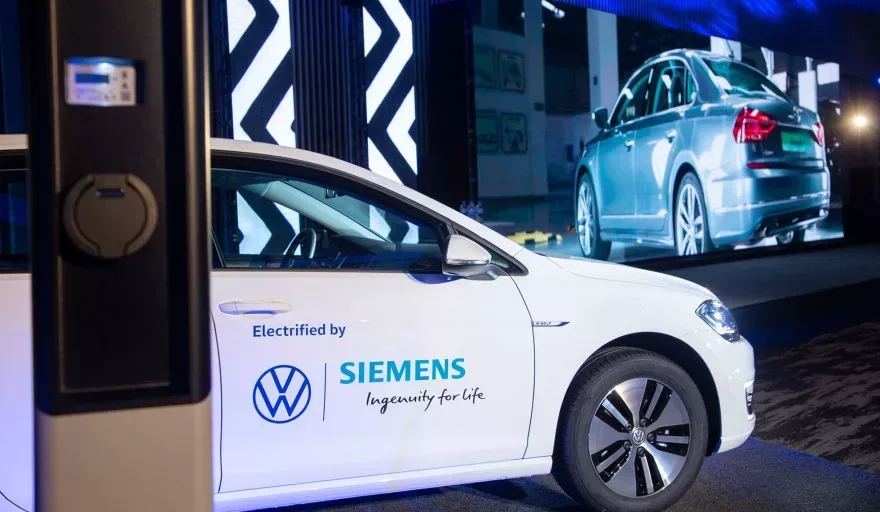
We spoke with CEO of Siemens South Africa, Sabine Dall’Omo, about the complicated context of development on the continent and the pandemic-accelerated potential for digital applications
Writer: Phoebe Harper
Siemens has long been at the forefront of integrated technology, specifically using its presence in Africa for the past 157 years to drive much-needed innovation on the continent and further social development.
We spoke with Sabine Dall’Omo, CEO at Siemens Southern and Eastern Africa, who originally joined the company back in the 1980s. Then, Siemens was a producer of steel pipes and other heavy industrial products. The company has since evolved dramatically, enjoying status as a global powerhouse in integrated technology spanning the electrification, automation, and digitalisation value chain.
“Electrification of the grid, automation as well as digital applications in electrification and automation – that is what makes Siemens,” Dall’Omo informs us.
During the years of her tenure, Dall’Omo has witnessed the rise and fall of many different technological trends and developments – none more notable than the contrast in entering an industry at a time when nuclear power was prevalent, compared to the advent of electrification and other renewables that shapes the energy sector today.
“I was interested by the proposition of the development of electricity, specifically, at that time, in what was still a nuclear world,” she recalls.
Of course, 1986 – the year that Dall’Omo joined Siemens – turned out to be a seismic year for nuclear, as the events of Chernobyl “changed the outlook on nuclear energy significantly,” she comments.
The fallout of the nuclear disaster accelerated Siemens’ exploration into more conventional electricity supply. Fast forward a few decades, and once again the aftermath of widespread calamity caused by the pandemic has fast-tracked much needed developments, specifically within the African continent.
As Dall’Omo acknowledges, Southern Africa has not always been at the forefront of innovation as many developments don’t get off the ground due to a paucity of market information and a lack of funding or government support.
“The South African market is a challenging space to work in because of long decision times and not necessarily moving reforms fast enough through the pipeline,” she comments.
“I think specifically in the infrastructure environment – you will see from the budget assessment and its feedback that the South African government have significantly underspent in the last year on infrastructure in relation to GDP – so that’s definitely a challenging environment,” Dall’Omo informs us.
It is, as Dall’Omo describes “bittersweet”, since the more time that you dedicate to projects and initiatives, the more rewarding it is when they finally come to fruition.
“For instance, some of our partners in mining companies have now received their own generation licence for more than 10 megawatt (MW) – I believe they both now have 40 MW on their capacity production licence, and these are really positive things.”
Rather than government hampering technological advancements, it is through industry partnerships and joining forces with government bodies, that a promising future will be possible, particularly with regards to the development of a ‘Smart Infrastructure’ within South Africa.
“In the context of the legislation of this country specifically, as many aspects are state run, there are many municipalities which, unlike Johannesburg or Pretoria, don’t have the financial means to actually implement smart technologies. Therefore, the idea must be from businesses together in partnership with the government to identify the ways to ensure that service delivery takes place in a smart infrastructure, and that business develops together with the government.”
An example of this is Siemens’ joint project with Volkswagen, ‘Moving Rwanda’ which was launched last year in Kigali and involved the roll out of an e-charging station and 50 electric VW Golfs.
“It is a flagship project as a form of modern technology on the continent. I’m also very proud of it because it shows that in a time when it was perceived to be difficult to do business in Africa, we did relatively well.”
“It’s not a big project and Kigali is definitely not the biggest city on the continent but the benefit of it is that it showed that within a time frame of less than a year, two big players on the industrial side were able to put our heads together and come up with the concept, get the buy in of the government and all the certificates you need and have the whole thing established, rolled out and available as a service – rather than one of these forever in Africa developing projects,” she elaborates. The support of the Government of Rwanda and of the City of Kigali for this project was outstanding.”
Pilot projects such as this are invaluable.
“That means for us that we have a showcase on the African continent that we can learn from.”
Siemens continually endeavours to change the continent’s reputation by levelling the playing field.
“One part of what is most important to Siemens is our reflection on the African continent. We ensure that we roll out the same technology as we would in Europe and the US because we believe that only if you have cutting edge will you be able to be competitive in the future.”
Dall’Omo attributes Africa’s increased acceptance of digitalisation and a renewed appreciation for technological advances to the pandemic.
“I do believe that, with COVID-19, we have seen the topic of digital applications, digitalisation, e-communication, really fast track in a way that people would not have assumed ever.”
Although hesitant to put a positive shine on an unprecedented pandemic, for Dall’Omo it has consolidated both the company and the continent due to the increased presence of members, stakeholders, and overseas partners attending meetings and conferences virtually.
“Africa became closer, whether you sit in Munich or Johannesburg, you have the opportunity to have meetings where more people can participate. This has created much more of an active exchange with the workforce, management, and with clients.”
This challenging time has also highlighted Siemen’s future direction by identifying the needs of the continent.
“Now, we are shaping trends in the context of digitalisation. We are talking to clients, partners, and stakeholders of any sort, specifically around data security, because everyone has understood in the COVID times that digital applications are important. More and more companies have a strong interest – this is clearly a strong field for Siemens to shape the future of that technology.”
Indeed, it is this idea of fulfilling an interest that is crucial to the successful adoption and implementation of the systems and solutions that Siemens offer. Dall’Omo reminds us of the fact that there needs to be an interest in the first place for technologies to be accepted, and particularly in Africa, this is not always the case.
“In South Africa, there are a number of areas where there is interest, specifically when it comes to electricity and water – so there is possibility here for what has clearly not yet been developed in the digital space,” she comments.
Dall’Omo also identifies renewable energy and grid management as a sector that calls for development.
“There have been a few activities with regards to electricity meters, but they’re not on the level that they should be. It’s a prepaid meter where you load cash/ credits – that’s not necessarily so smart!”
Within the African context, Dall’Omo is optimistic about the advent of renewable energies, largely thanks to the country’s Integrated Resource Plan.
“Out of all the areas of investment, a large chunk will go into green energy. This is a good thing since South Africa signed the Paris Climate Agreement in 2015 and therefore, we need to adhere to these serious commitments as a country.”
Siemens reflects this interest and embodies the concept of thinking globally whilst acting locally.
“We have a project here in South Africa in partnership with German development agency GIZ, close to the border with Lesotho – it’s a small solar farm with less than 500 kilowatts of electricity that’s for a farming community, to get them off-grid and ensure they have sufficient electricity to run irrigation in an agriculturally dominated environment.”
“To have these kind of technologies integrated into a smart grid where the community can run their own application – these are the things which make us proud, showing that it is possible to have this kind of technology where everyone thinks that power can only come from coal,” she comments.
Across the wide range of operations that Siemens encompasses, providing market-specific solutions across a myriad of industries, Dall’Omo recalls the ethos that ties it all together, particularly within developing countries.
“Our core value at Siemens, is business for society – it’s more than just hitting the next quarter,” she concludes.



























